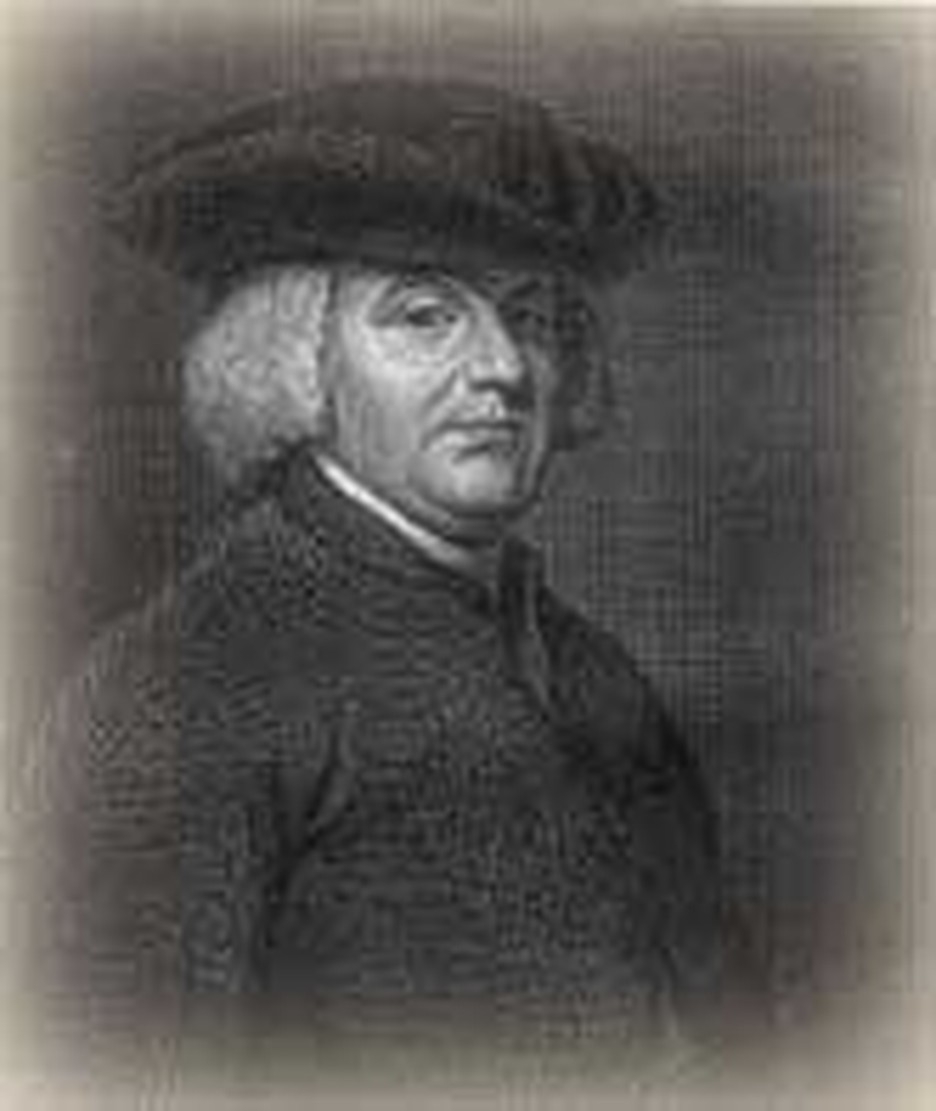
The first authoritative date we have for the life of Paley is this day, August 30, 1743. Then, a little more than a month old, he was baptized. A clumsy youth, he turned to study. His father thought that the boy had the clearest head he had ever seen. Although Paley was sufficiently good at mathematics to become first wrangler of his school (that is, he placed highest in the math exams), he became a clergyman. Following the famous John Locke's lead, Paley wrote popular apologetics for Christianity. So well-organized were his works that they became standard textbooks.
View of the Evidences of Christianity was an immediate hit and so was its successor Natural Theology. In Natural Theology he included his famous "watchmaker" argument. If a savage were to find a watch in the middle of the jungle, he would at once suppose it the work of an intelligent being. Nature is far more complex and elaborate than a watch and therefore also requires a designer. View of the Evidences of Christianity argues for the credibility of biblical miracles.
Skeptics over the years attacked Paley's watchmaker argument on philosophical grounds. However, in 2005, researcher Jimin Wang reported detail which appears to be direct evidence of Paley's Watchmaker. Certain cyanobacteria have a "circadian oscillation" which is regulated by a rotary device, composed of proteins, that literally functions as a clock.
Apart from the watchmaker argument, none of Paley's works were highly original. He freely admitted he borrowed whatever he could use from others; to some extent, all theologians must, the field has been so well covered. However, Paley's ideas in a third book Principles of Moral and Political Philosophy anticipated thinkers who came after. "The general consequence of any action may be estimated by asking what would be the consequence if the same actions were generally permitted." This sounds like Kant. Bentham devised his utilitarian ethic after reading Paley's comment that "we should carry out those actions which promote the general happiness and avoid those which diminish it."
Paley was an odd duck. Physically uncoordinated, he once fell off a horse seven times in a single ride to town. He was constantly laughed at (and laughed at himself) because of his absent-mindedness. When he walked it was with weird gesticulations and the tip of his cane in his mouth! Yet he enjoyed people and would draw them out for what they knew. He was a devoted father. And his work was the fitting culmination of a century and a half of natural apologetics which began with John Locke.
Bibliography:
- Eerdman's Handbook to the History of Christianity. Editor Tim Dowley. Berkhamsted, Herts, England: Lion Publishing, 1977.
- Guillen, Michael. Bridges to Infinity. Los Angeles, Tarcher, 1983. p.122.
- Jimin Wang, "Recent Cyanobacterial Kai Protein Structures Suggest a Rotary Clock," Structure 13 (2005): 735-41.
- Kunitz, Stanley L. British Authors Before 1800; a biographical dictionary. New York: H. W. Wilson, 1952.
- Paley, William. Moral and Political Philosophy. New York, S. King, 1824.
- "Paley, William." Dictionary of National Biography. Edited by Leslie Stephen and Sidney Lee. London: Oxford University Press, 1921-1996.
- "Paley, William." Edwards, Paul, editor. The Encyclopedia of Philosophy. New York, Macmillan, 1967.
- Sampson, George. Concise Cambridge History of English Literature.Cambridge, 1961.
Last updated April, 2007.


